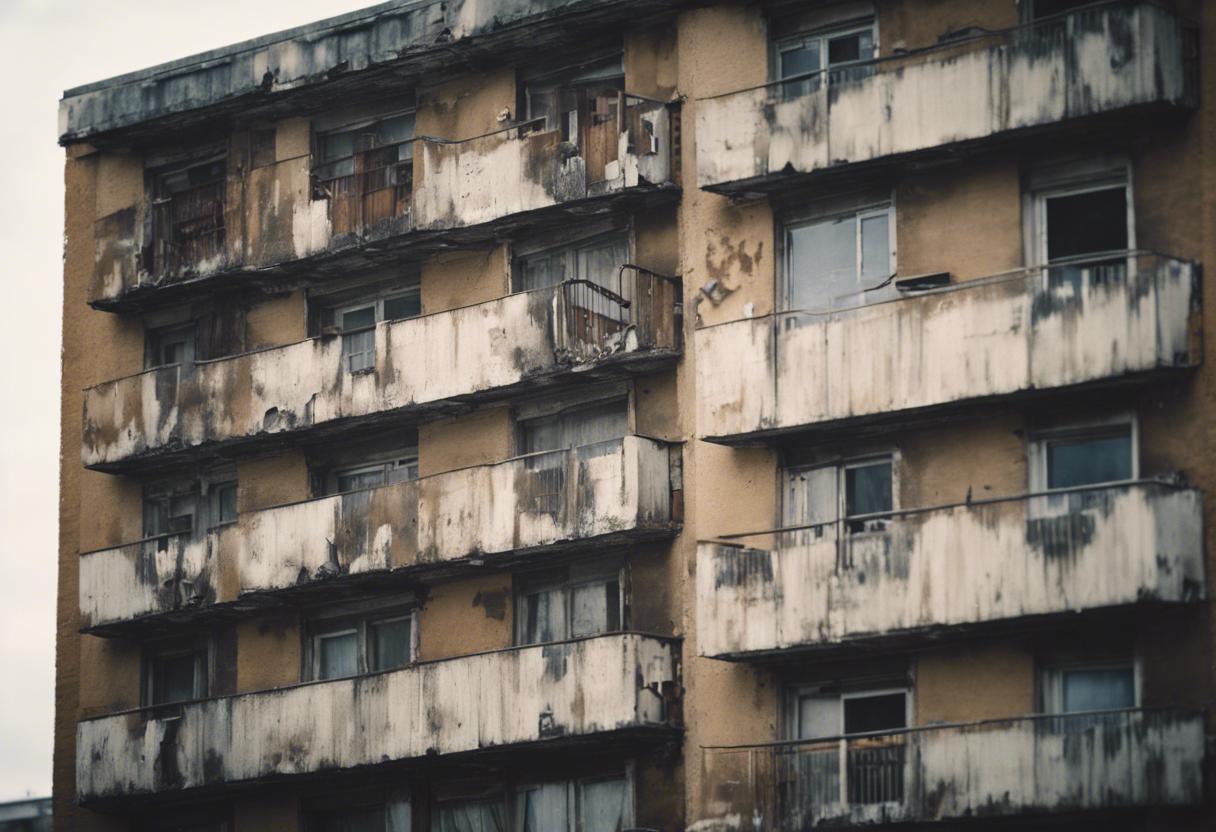A recent report has highlighted a serious issue with funding for critical upkeep in most apartment blocks in Ireland. The majority of these blocks are lacking in sufficient financial reserves for essential maintenance, which styles apartment owners with significant financial peril, experts highlight.
In many cases, residents collectively contribute to dedicated “sinking funds”, which aid in financing the upkeep and renewal of shared spaces and services within the respective blocks. Nonetheless, according to the Society of Chartered Surveyors Ireland (SCSI), almost 90% of property block managers express that they lack sufficient funds to meet these needs. Furthermore, 9% of managers don’t have an allocated fund for this purpose at all.
Typically, property managers use sinking funds as a fallback for maintaining or upgrading communal areas and facilities such as elevators, stairs, rooftops, alarm systems etc. within apartment blocks. Despite frequent contributions from property owners to such funds, the SCSI reveals that most of these reserves, as per a forthcoming report’s analysis, are under-funded.
The SCSI president, Kevin Hollingsworth, cautioned that it would be unsustainable to let these funds suffer from under-capitalisation and property owners are destined to face financial hardship if the deficient funds are not addressed appropriately.
The mentioned report, namely, Real Cost of Apartment Block Maintenance – Examination of Sinking Funds, surmises that the owners should allocate around €2,000 per annum for property upkeep. However, most only reserve €200-€300 per annum, leaving a substantial financial gap.
The report studied 495 unique blocks, comprising approximately 38,000 apartments. More than half of the property managers who responded admitted that less than 30% of the apartment complexes under their management had satisfactory sinking funds.
Hollingsworth also mentioned that 40% of property managers attribute this issue to owners’ reluctance towards higher charges. Some opined that owners lack understanding of the long-term costs of apartment block maintenance. Meanwhile, one fifth of the management revealed that owners prefer to pay on a need-basis.
To calculate the required funds for maintenance over 20 years, the report analysed the real construction costs for nine blocks of varying size and age in Dublin. For a building with up to 49 apartments, the annual maintenance expenses per house were estimated to be €2,042. However, most owners only contribute €237, leaving a staggering €1,805 unaddressed.
Mr Hollingsworth has warned property owners that a shortage of critical reserves could undermine the capability of management to carry out crucial renovations and replacements. Examples of this shortfall include larger housing complexes, with deficits ranging from €1,431 for units up to 99 homes, to €1,756 for locations with over 200 flats.
He stressed that such situations could potentially risk a deterioration in both the properties’ standard and the quality of life for residents. Furthermore, this situation might endanger their health and safety.
In his report, he emphasised that older developments tend to suffer from insufficient maintenance funds, some having none at all, and this was a concern echoed by the society’s president. There was the expectation that such instances would pose severe problems for structures nearing two decades.
Many of these real estate assets were completed during the Celtic Tiger period, leading to the possibility that owners might be currently dealing with considerable defects. Despite this, Mr Hollingsworth underlined the importance of establishing a robust sinking fund, insisting it was vital to secure the necessary resources for replacing essential structures and services when required.
Expressing his disappointment, Mr Hollingsworth indicated that both property owners and property managers had not adequately addressed this issue since the society published their previous report on the matter in 2018.

